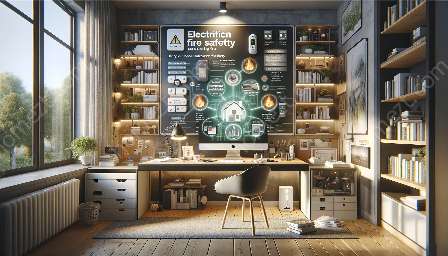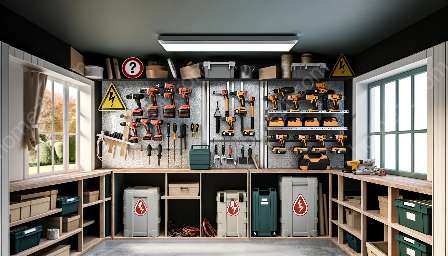Natural disasters can pose significant threats to your home's electrical system, creating potential hazards for your safety and security. In this article, we'll explore essential measures and precautions to safeguard your home's electrical system during natural disasters while ensuring home safety and security.
Understanding the Risks
During natural disasters such as hurricanes, floods, earthquakes, and wildfires, your home's electrical system is vulnerable to various risks, including power surges, electrical fires, and electrical failures. These risks can result in property damage, injuries, and even fatalities. Therefore, it's crucial to take proactive steps to minimize these dangers.
Home Electrical Safety Basics
Prior to a natural disaster, it's essential to ensure that your home's electrical system is in good condition. This includes inspecting wiring, outlets, and electrical appliances for any signs of wear, damage, or deterioration. It's also important to have ground fault circuit interrupters (GFCIs) and arc fault circuit interrupters (AFCIs) in place to protect your home from electrical hazards.
Key Precautions
When a natural disaster is imminent, it is critical to take specific precautions to mitigate electrical safety risks. Here are some key measures to follow:
- Turn Off the Main Electrical Switch: If authorities advise evacuation or in case of an approaching natural disaster, turning off the main electrical switch can prevent electrical hazards caused by flooding or electrical surge.
- Unplug Electrical Devices: Unplugging all electrical devices, including appliances and electronics, can reduce the risk of damage from power surges or electrical fires.
- Secure Backup Power Sources: Implementing a backup power source, such as a generator or uninterruptible power supply (UPS), can ensure the continuous operation of essential electrical equipment during power outages caused by natural disasters.
- Protect Outdoor Electrical Systems: Securing outdoor electrical equipment, such as HVAC units and electrical panels, can prevent damage from high winds, flooding, or airborne debris.
- Waterproofing Electrical Outlets and Appliances: Using waterproof covers for outdoor outlets and relocating electrical appliances to higher ground can minimize the risk of electrical hazards caused by flooding.
- Inspect After the Disaster: After the natural disaster has passed, it's crucial to inspect the electrical system for damage and have it assessed by a qualified electrician before restoring power.
Integration with Home Safety & Security
Electricity is integral to both home safety and security systems. During natural disasters, ensuring the integrity of your home's electrical system is essential for the proper functioning of safety and security equipment, including smoke alarms, carbon monoxide detectors, and security cameras. By prioritizing electrical safety, you can maintain the effectiveness of these systems when they are needed the most.
Conclusion
Protecting your home from electrical safety hazards during natural disasters requires proactive planning and vigilance. By understanding the risks, implementing essential precautions, and integrating these measures with home safety and security, you can effectively mitigate potential electrical hazards and safeguard your home and loved ones. Stay informed, stay prepared, and prioritize electrical safety to weather any natural disaster with resilience and confidence.



















